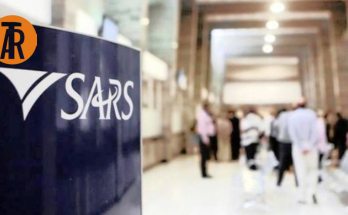South Africa’s national budget presentation was postponed on Wednesday due to a dispute between the country’s two largest ruling coalition parties over a proposed increase in Value-Added Tax (VAT).
The unexpected delay rattled financial markets, causing the rand to weaken and government bonds to decline.
Political Deadlock Over VAT Increase
The Speaker of the National Assembly, Thoko Didiza, informed lawmakers that the budget speech, initially scheduled for Wednesday, would now take place on March 12th, 2025.
This marks the first time since the end of apartheid that the African National Congress (ANC) cannot pass a budget without the support of other parties, following its loss of parliamentary majority in last year’s election.
The Democratic Alliance (DA), ANC’s primary coalition partner, confirmed that the delay stemmed from its opposition to a proposed 2-percentage-point VAT hike, which would raise the rate from 15% to 17%.
Tensions within the coalition have surfaced since its formation in June, particularly over policies in education and healthcare.
However, the abrupt postponement of the budget caught many by surprise, highlighting deeper divisions.
Economic Uncertainty and Revenue Shortfalls
The proposed VAT hike was reportedly aimed at addressing a significant revenue shortfall, with the additional funds earmarked for social welfare and education.
According to Business Day, the government is grappling with sluggish economic growth and rising public debt, making revenue generation a critical issue.
Louw Nel, a political analyst at Oxford Economics, noted that the delay raises “serious questions about the coalition’s ability to navigate major disagreements.”
The uncertainty surrounding the budget is expected to persist for the next three weeks, adding to economic instability.
Fiscal Policy at a Crossroads
The budget delay comes at a time when South Africa is already under global scrutiny. Recent actions by U.S. President Donald Trump, including suspending aid over the country’s land reform policies and its genocide case against Israel, have further complicated the economic landscape.
Economists polled by Reuters had anticipated that the budget would reveal wider deficit projections compared to October estimates, with public debt stabilizing at a higher level.
David Omojomolo, an economist at Capital Economics, emphasized that the budget delay underscores domestic political fractures within the coalition, rather than external policy disputes.
As South Africa struggles to balance fiscal consolidation with social spending, the next few weeks will be crucial in determining whether the government can reach consensus on tax policy and revenue generation.




